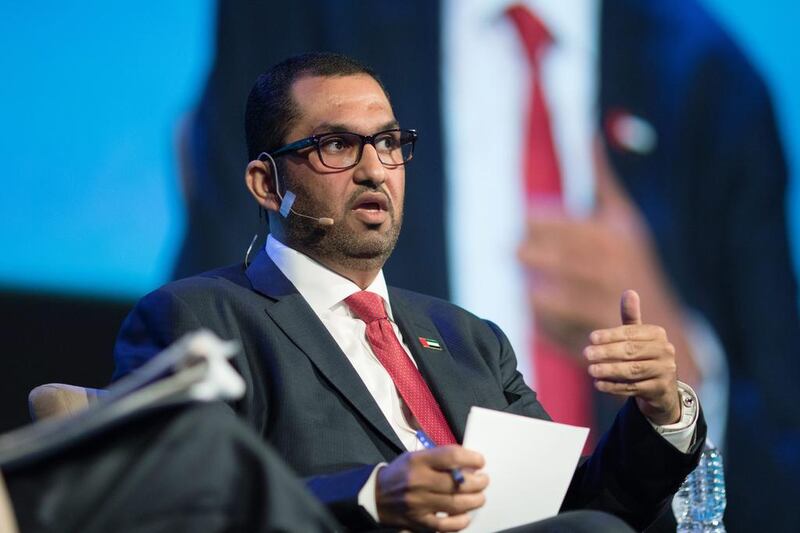The heads of Abu Dhabi National Oil Company (Adnoc) and ExxonMobil focused on downstream investment at an annual industry gathering in Houston, giving an indication of the industry’s strategic priorities as the longer-term investment environment for oil and gas remains uncertain.
Sultan Al Jaber, who took over as head of Adnoc early last year, said in a discussion with oil historian Daniel Yergin at the CERAWeek summit that one of the three big trends he saw driving the industry was an “exponential expansion of the petrochemical market”, particularly in Asia. He said this was a key reason Adnoc has set a goal of tripling petrochemical production by 2025.
Exxon’s new chief executive, Darren Woods, who took over after his predecessor, Rex Tillerson, became the secretary of state in US president Donald Trump’s administration last month, outlined in a keynote speech the company’s plans to invest US$20 billion on 11 downstream projects in the US Gulf Coast region over the next decade, creating up to 45,000 jobs.
The comments underline the industry’s current dilemma: dealing with a persistent glut of supply while also ensuring there is sufficient investment to diversify and avoid exposure to another boom-bust cycle.
Also, for national oil companies such as Adnoc, there is a renewed urgency to diversify to meet long-standing national goals, such as fostering non-oil industry growth, something for which the petrochemical sector can be a catalyst.
Mr Al Jaber noted the departure Adnoc has taken in its investment strategy by being more flexible in the types of deals it will enter. He gave the example of the share swap in December that gave Abu Dhabi a 2 per cent stake in BP in exchange for BP’s 10 per cent stake in Adnoc’s main onshore oil concession, Adco.
Also, the deal last month with China National Petroleum and CEFC China Energy, giving the Chinese entities a combined 12 per cent of Adco and helping Abu Dhabi align with one of the world’s fastest-growing oil markets.
In the next few decades, “most [oil demand] growth will come from non-OECD countries and will require an estimated $25 trillion in new investment”, Mr Al Jaber said. “That is a level of funding no company can deliver on its own. It’s only possible through new and productive partnerships, within the industry, as well as between the public and private sector.”
Adnoc has also recently announced Abu Dhabi’s first strategic oil deal with India, a joint storage project, and said it is studying others, including downstream deals, to open up further access to the country’s vast oil market.
In petrochemicals, Adnoc has built market positions mainly through links with companies such as Borealis, which is majority owned by Mubadala Investment Company, an Abu Dhabi strategic development fund. Borouge, a Borealis and Adnoc petrochemicals joint venture in the Western region of Abu Dhabi, doubled production last year with the aim of gaining more Asian market share.
Exxon also is partnering as it expands and last summer said it is looking at developing a joint venture petrochemical complex in either Texas or Louisiana with Saudi Basic Industries (Sabic), whose vice chairman, Yousef Abdullah Al Benyan, said Sabic is keen to diversify geographically while having access to cheap shale oil and gas feedstock.
Mr Al Jaber said that Adnoc is looking for “value add, strategic partners” for its projects, ones that can bring a technological advantage – which will, for example, open up new chemicals markets – or, like the Chinese and Indian deals, can ensure access to markets.
The industry’s emphasis on spreading risks, cost control and strategic diversification is reminiscent of the low oil price period at the turn of the century, which also resulted in some of the mega-mergers that created companies like ExxonMobil and BP (which bought Arco and Amoco).
amcauley@thenational.ae
Follow The National's Business section on Twitter





